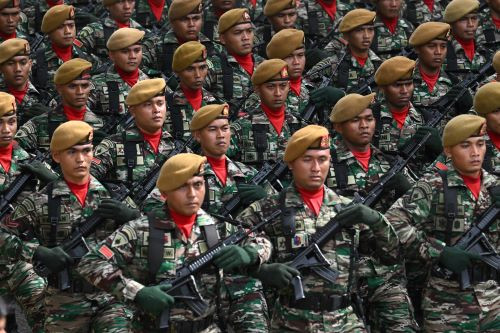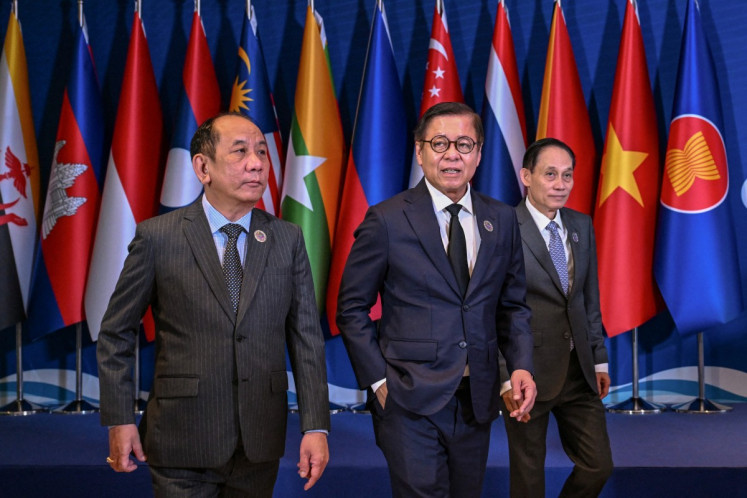Popular Reads
Top Results
Can't find what you're looking for?
View all search resultsPopular Reads
Top Results
Can't find what you're looking for?
View all search resultsEveryone loves a soldier
History shows Soeharto’s New Order could cling on to power for more than 30 years, largely due to the support of the then Armed Forces (ABRI), which also included the police, through the use of coercion, intimidation and even violence to silence dissent.
Change text size
Gift Premium Articles
to Anyone
G
one is the much-vaunted idea of the “military returning to the barracks” that filled the public discourse back in late 1990s in the wake of the Reform movement that put an end to the New Order.
Now more than 25 years later, the nation is set to welcome back the men in uniforms who will be entrusted with civilian jobs at the whim of the president, once the House of Representatives passes the controversial amendment to the 2004 Indonesian Military (TNI) Law.
The House, with full support from the government of President Joko “Jokowi” Widodo, has proposed changes to the TNI Law, which will allow active military officers to take any position in the government if the president decides a need for it. The draft revision also proposes expansion of the TNI’s non-war military operations, from the current 14 to 19 types, which include aiding the government in facing cyberattacks and stamping out illicit drug circulation in the country.
The provisions amounts to a blank check for the president, as the TNI supreme commander, to assign as many military officers as he or she pleases to civilian jobs, which was the norm under the New Order, during which the military played both defense and sociopolitical roles, known as dwifungsi (dual function).
History shows Soeharto’s New Order could cling on to power for more than 30 years, largely due to the support of the then Armed Forces (ABRI), which also included the police, through the use of coercion, intimidation and even violence to silence dissent. The military’s grip on the sociopolitical realm was institutionalized in the appointment of military officers as governors, mayors and regents.
The current TNI Law, in the spirit of professionalism, restricts the military from non-defense matters. Indeed, according to the law, active officers can fill government posts, but only in 10 ministries and institutions that require military-related competency, such as the Defense Ministry, the State Intelligence Agency (BIN), the National Resilience Institute (Lemhannas), the National Search and Rescue Agency (Basarnas) and the Maritime Security Agency (Bakamla).
Many have expressed concerns, if not fear, that the revision of the TNI Law will pave the way for reinstatement of the military’s dual role. But perhaps the military is not to blame, as the civilian governments, especially the Jokowi administration, have had the tendency to give the military room to expand its roles.
Despite its checkered past, the military has been fortunate in continuing to win the hearts and minds of both the political elites and the public. Opinion surveys have consistently revealed high public trust in the TNI, which perhaps explains why civil society groups’ warnings about the return of dwifungsi have fallen on deaf ears.
Whether or not Jokowi, who will step down in October, or his successor Prabowo Subianto, who is himself a former Army general, will claim the maximum benefits of the new TNI Law, it is the principle of civilian supremacy that will bear the brunt.
If the dwifungsi curtailed democracy, the revised TNI Law may put the final nail in the coffin of our Reform dreams.











